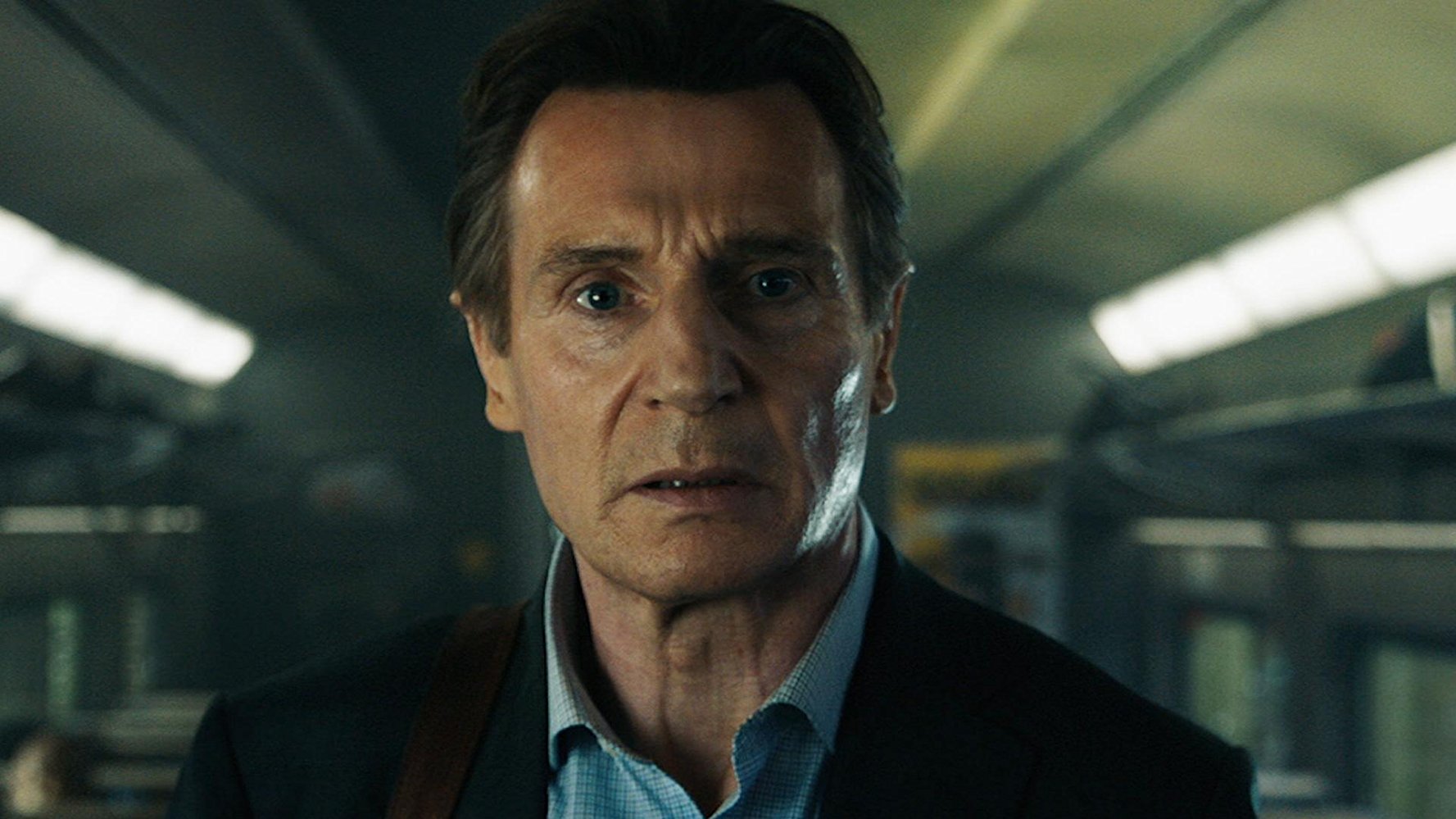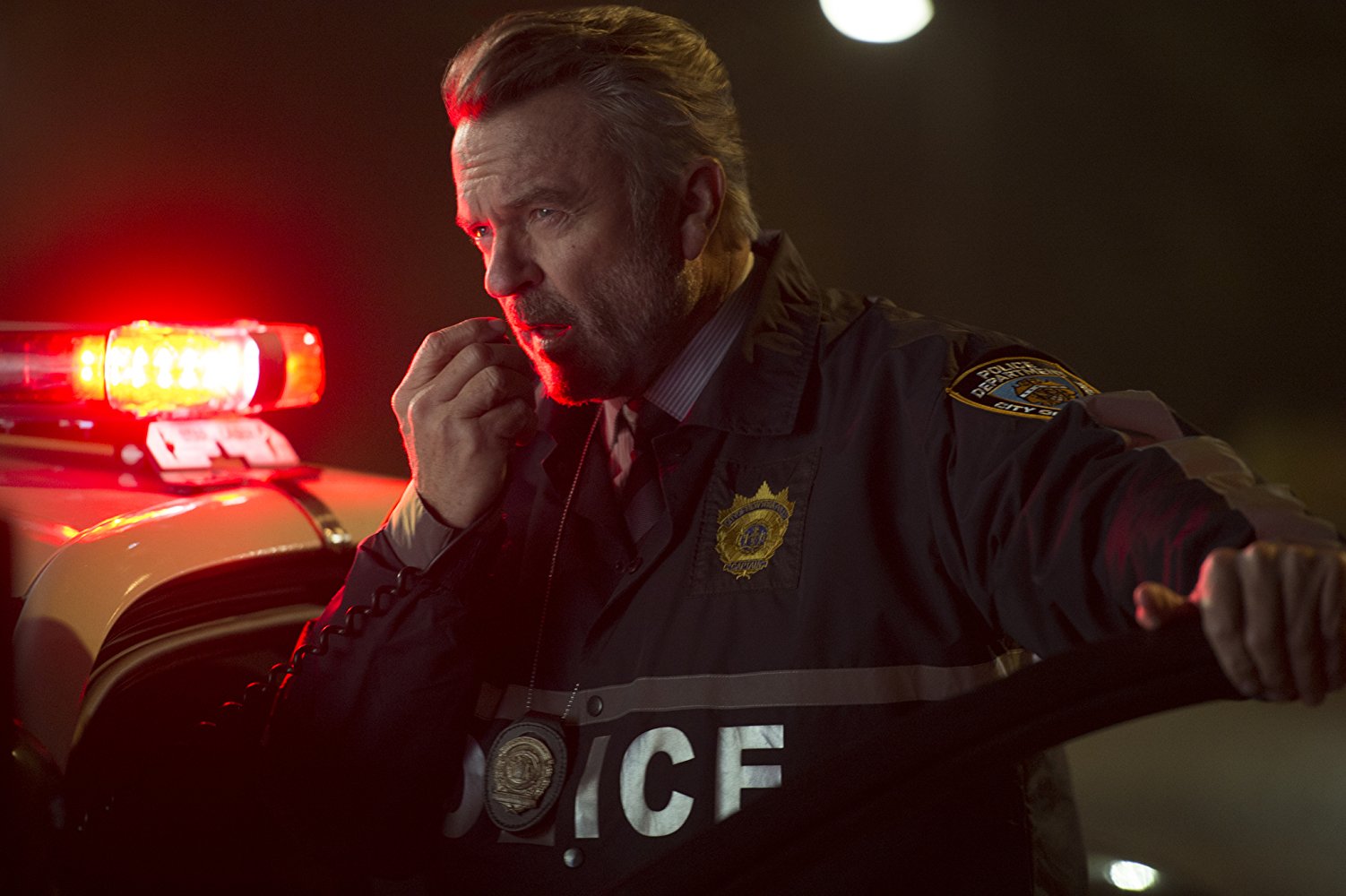Like Murder on the Orient Express, but not.
Happy 2018 everybody. As we welcome in 2018, I’m hoping to spend a lot of executive time in my shithole. If you were wishing for 2018 to be a fresh start, keep on wishing everybody. On behalf of all non-deplorable Americans, I apologize to Haiti, El Salvador, Honduras, Africa, Norway, the Netherlands, children (immigrant and non-immigrant), elephants, the dictionary, geniuses, and oceanic life (this is not a comprehensive list) for the last eleven days and almost all of 2017. We don’t know who the human (?) occupying the White House will insult or attack next, but we are as concerned as you are. Please remember that he does not represent or speak for the majority of us and that we hope this nightmare ends as quickly as you do. In the meantime, please enjoy this token of our appreciation – a movie starring Liam Neeson, an Irish-American immigrant raised in a working class family who hasn’t fled the United States yet.
(SPOILER ALERT. I’m sorry again.)
In The Commuter, Neeson plays Michael McCauley, an Irish immigrant, ex-cop, insurance salesman who really wants to make sure every knows he is sixty years old. He commutes by train into New York City every day for work and knows all the regular riders’ faces. He has done everything right in life (according to himself and his boss), but is unexpectedly fired one day and, instead of a severance package, is given a health insurance policy as a parting gift on his way out the door. I can’t prove Mitch McConnell wrote that little nugget into the screenplay, but demonizing healthcare by using it to slap an elderly Irish immigrant in the face is definitely the brain child of an (R).
(Note: Casting Liam Neeson as an Irish immigrant is a little too on the nose.)

Did I mention I was old? And Irish?
On his (presumably) last train ride home, Michael is pondering how he is going to break the news to his wife and pay his son’s college tuition when a woman (Vera Farmiga) sits down and starts chatting his ear off. Since Michael is a much more pleasant seatmate than Ann Coulter, he indulges the woman, who proceeds to offer up a hypothetical question – for $100K, would he perform a task that is meaningless to him, but has consequences to someone else (the task being simply to identify a stranger on the train and plant a GPS tracker on the person’s bag)? He immediately asks appropriate questions, so we know he has morals, but he also just lost his job and has two mortgages, so we know he will take the bait (if he finds and takes the $25K she hid in the bathroom, he is effectively agreeing). However, he immediately has second thoughts, but train lady (who departed the train promptly after the conversation concluded, but contacts him via phone) is having none of it. She quickly resorts to threats (against his family) and tells him he has until the last stop on the line to finish the job. Had the writers put as much effort into thinking out the rest of the plot as they did the opening scene depicting Michael’s commute (quasi-time lapsed over ten years), the movie would have been extremely compelling and a thrill to watch. Instead, we got a half-hearted movie asking the question “who dat?” while Michael fumbles back and forth through the half-dozen train cars for the majority of the film.
One glaring problem with the film is that Michael, as written, is a terrible choice for train lady’s game and this movie. He comes off like a stranger on the train, even though the film goes out of its way to make sure we know he has ridden this particular train route every day for ten years. He interacts with a couple of familiar people occasionally, but even one of the regular train attendants treats Michael like he’s never met him. Plus, the film pounds home that Michael is an ex-cop, but has the investigative and interrogation skills of a towel rack. To be fair, he quickly narrows down the list of suspects by looking at ticket stubs that are conveniently sticking up out of every seat on the train (the ones getting off at the stop identified by train lady), but after that he has to strike up conversations with them to further his quest. To put it mildly, his people skills are the equivalent of a nerdy middle school boy trying to ask his crush out for hamburgers, but the boy is also a bull and his crush is the china shop. Mixed metaphors aside, we’re fairly sure why he’s an ex-cop and an ex-salesman.

I’m going to spend the vast majority of this film as a disembodied voice. That’s why I’m dressed like this.
Because Michael’s skill set is never established, we are forced to endure a string of awkward confrontations ranging from Michael harassing a teenage girl to mad-dogging a tough-guy during an impromptu Texas Hold ‘Em game. It’s like the writers had no idea that if anyone knows how to talk to people, or at least strike up conversations, it’s insurance salesmen, closely followed by cops. Thus, the audience is left wondering when Taken-dad will show up and start bad-assing his way around the train and investigation because this is a Liam Neeson film; how could it not?
Michael isn’t the only part of the script that the writers flubbed. Another is in train-lady’s approach. Instead of just assuming he was up to the task, she should have given him a truly innocent task to complete to begin with and just claimed to be spicing up an otherwise long, monotonous journey. She also should have stayed on the train, which would have added a really fun dynamic to the investigation, as she could have remained really ambiguous to the audience and kept Michael from getting so suspicious. Unfortunately, the production studios don’t listen to my Movie Fixers Podcast, so I wasn’t consulted to prevent this sorely lacking screenplay from being shot on film.

Hey guys? San Neill here. I’m in this movie too, you know!
The third, and biggest whiff, was in the climax. Again, SPOILER ALERT, but what the hell was the end game for train-lady after Michael failed the quest? Train-lady’s proxy (who was telegraphed in this film, by the way), reveals himself to the fifteen people left on the train (after a physics-defying crash that left the audience in hysterics at what clearly was not intended as comedy) while completely surrounded by cops and demands Michael reveal the identity of the suspect. Part of the plan was to frame Michael for everything, but Proxy just told everyone that Michael was telling the truth about everything and Proxy has a gun with far fewer bullets than people on the train, one of which must be used to kill the suspect. Plus, snipers have a magic color-coder scope that marks Proxy and can see all of the passenger’s heat signatures through the walls of the train car. In other words, they will literally see Proxy kill everyone on the train (which is apparently plan C). Thankfully, I wasn’t the only person laughing during this nonsense.
After the movie was over, I tried to talk myself into liking this film, but myself just wasn’t having it. If you don’t scratch the surface of the film, don’t need anything more than watching Liam Neeson fight a few people, and don’t host a podcast devoted to identifying and fixing flaws in movies, you’ll probably be satisfied with The Commuter. It has the bones of a very cool movie, but was released in early January for a reason. Like most Neeson-led flicks post-Taken, you’ll probably forget you saw The Commuter within a week because it isn’t good enough to chat about or bad enough to complain about. Well, unless you make that commute too.
Rating: Ask for seven dollars back and donate it to any charity helping people listed in the first-paragraph apology.